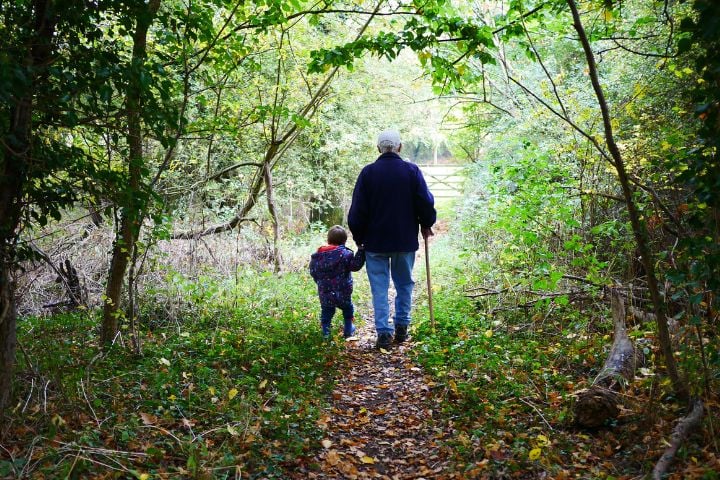
Foster Care Update: Utilizing Kinship Care to Keep Families Together
Wednesday, October 5th, 2022
Author: Anna Daniszewski/VPLC Legal Fellow
Virginia Governor Youngkin’s Safe and Sound Task Force has focused on gaps and lack of options for high-needs children in the foster care system. Many of these children were forced to sleep in DSS offices or emergency rooms. The task force is an exemplar for how to bring people together to address stubborn situations. Reporting good success in meeting short-term needs, it is now turning its focus to systemic challenges.
One such challenge Virginia has tackled in recent years is Kinship care — where relatives step in to care for children with the goal of preserving the family. At present in Virginia, at least 62,000 children are being raised by a relative — often a grandparent, living on limited means — without their parent in the home. The Virginia Department of Social Services has been working toward the development of a “kin-first culture.” VPLC has advocated for support for kin caregivers and bills and policies to improve kinship connections.
Separating children from parents is intended to be a last resort for children. When a local department of social services (DSS) removes a child, it must develop a plan for foster care placement and services to work toward the goal of reunifying the family; placing the child in a foster home with kin is part of that plan whenever possible. Taking a child from her home is traumatic. Placing her in an unfamiliar home – sometimes referred to as “stranger foster care” – makes it worse. Kinship foster care placements have been shown to be more stable and less traumatic for children. Other advantages It can make visits with parents feel more natural, and services easier to coordinate. This helps to heal the bond between parent and child so that they can reunify.
Virginia has made strides by changing laws to prioritize kinship placements over stranger foster care. For example, local departments are now required to identify and contact potential kin caregivers whenever a child enters foster care or needs to change foster homes. It is also now easier for kin to get initial approval — new laws allow them to complete some non-safety-related foster parent trainings after the child is placed. Departments must include kin in developing foster care plans, and—thanks to bills carried this year by Senator Monty Mason and Delegate Wendy Gooditis, kin have a special right to appeal a denial of their request to be the child’s foster placement.
Virginia has also launched state- and federal- funded Kinship Guardian Assistance Programs – commonly known as KinGAP. In some cases, agencies and courts will decide that family reunification is not possible and can no longer be the goal. Before KinGAP, the new goal would usually be adoption, which first requires terminating parental rights and permanently severing the family. KinGAP allows relatives to receive support without the necessity of a parent’s rights being terminated.
KinGAP is only available to relatives in certain situations. Unfortunately, Virginia’s reliance on the practice of “diversion,” also known as “hidden foster care,” means that the vast majority of relatives will not qualify for KinGAP. Concerns about KinGAP is the number one reason kin caregivers reach out to VPLC’s Center for Family Advocacy.
The field is waking up to what former foster youth are telling us: termination of parental rights for the purpose of adoption is the wrong goal. Why? Because their families were not given the support that would have allowed them to stay together. Or because more than in almost any other state, Virginia’s foster children lose their parents but are never adopted, aging out as “legal orphans.” And because many youths reconnect with their parents and siblings as adults anyway, picking up the pieces left by the system.
KinGAP provides an alternative goal: rather than terminate parental rights, members of the family can become the legal guardians of children who cannot return to their parents. These children will grow up in safe environments without being forced to cut ties to their parents and extended family, their heritage, and sometimes even their language. Children and KinGAP families can continue to receive services and resources to ensure that they are supported.
While we raise kin caregivers up, the ultimate goal must always be to ensure families can stay together and thrive. Even in the best adoption and kinship outcomes, the loss of one’s birth family – your parents and, in some cases, your siblings – has profound lifelong consequences. Parents have the right to safely raise their children, but children also have the right to grow up with their families.
Kinship care is a better tool than most in the child welfare system. We should advocate for its use, and celebrate those who lend their support to kin. But in recognizing greater opportunities for kinship care, we must not lose sight of its purpose: to give children the best chance in life by strengthening and preserving their families.
CONTACT: Connie Stevens, Communications Director, Virginia Poverty Law Center
connie@vplc.org
804-659-7368
